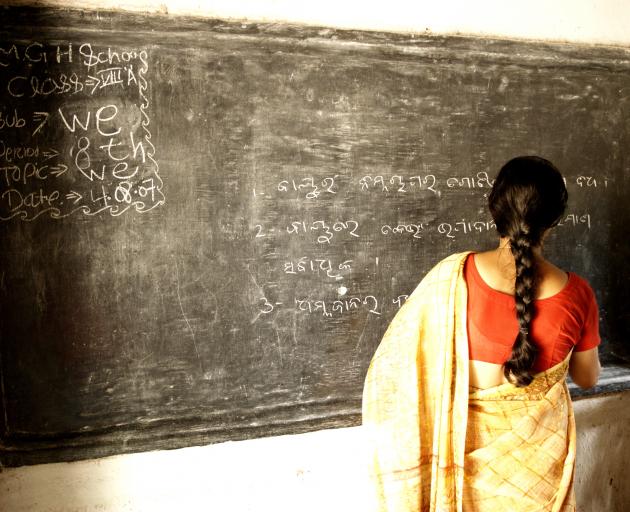
Being a desi (person of South Asian origin) teacher in New Zealand often feels like stepping into Alice in Wonderland — a land where the rules are familiar yet curiously different.
You navigate a maze of cultural expectations, and just when you think you’ve got it figured out, something surprising pops up.
One of the most puzzling aspects? The way respect for teachers is expressed — or not expressed — by students.
Back home, teachers hold an almost sacred position in society. If you see your teacher on the street, you stop, greet them, and maybe even ask how they’re doing or inquire about their health.
But here in New Zealand, students often pretend they haven’t seen you.
At first, I wondered if it was because I look different or speak differently, making me feel like I didn’t belong.
However, my local colleagues assured me this is just the norm (maybe they didn’t want to hurt me more by saying, hey mate, this is unusual).
The cultural gap became even more apparent during a recent graduation ceremony. Most students passed by their teachers without a glance.
At one point, a student said to me, "Hey, can you get out of my way so I can reunite with my friends?"
I was taken aback by the casual dismissal. In contrast, the desi students approached me with warmth, greeting me, thanking me, and showing genuine respect. Their actions were a comforting reminder of the values we share.
Back home, even now, if I were to meet a teacher from my primary school (and I hope some are still alive), I would stand as a mark of respect, greet them warmly, and ask after their well-being.
This ingrained respect for teachers isn’t just about hierarchy — it’s about acknowledging the role they play in shaping lives.
Another eye-opener came during a lighthearted segment at the graduation ceremony where students presented humorous awards to their teachers. While the intention was to foster fun, some awards felt poorly thought out.
A teacher was referred to as the "GOAT" — an acronym for "Greatest of All Time." While intended as a compliment, the informality felt out of place at such a formal occasion.
I received an award referencing a "side hustle", which breached my privacy and made me uncomfortable and embarrassed.
It didn’t end there. That same night, I received a message from a staff member wishing me well with my side hustle. This left me deeply uncomfortable. Several colleagues also expressed disappointment with awards that felt disrespectful or inappropriate.
These experiences highlight the cultural nuances of teacher-student dynamics in New Zealand. The casual, egalitarian approach fosters open communication, but it can also blur boundaries and diminish respect in certain situations.
As a desi teacher, I find myself navigating these differences with a mix of humour, curiosity, and a deep longing for the old-world respect we grew up with.
Ultimately, being a teacher— whether in New Zealand or South Asia — is about bridging gaps. It is about fostering mutual respect, regardless of cultural norms. After all, while the setting may change, the value of a teacher’s role remains universal, even if the ways it’s acknowledged differ.
And in this Wonderland of teaching, every twist and turn is an opportunity to learn and grow.
• Mudassir Anwar is a senior lecturer from the School of Pharmacy and secretary Dunedin Pakistan Society.









